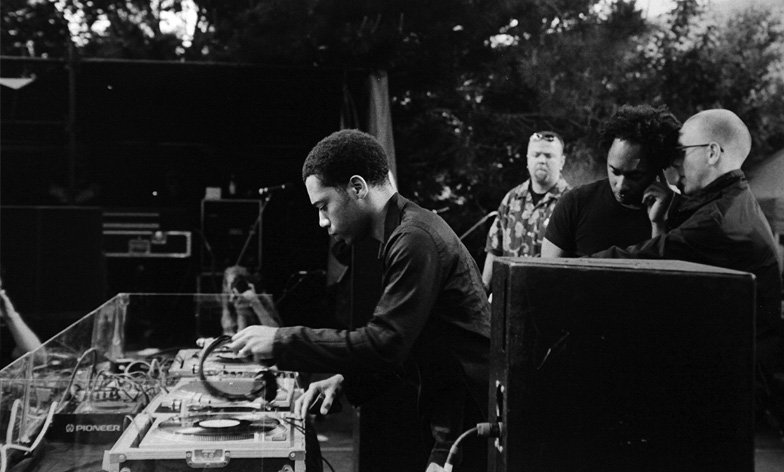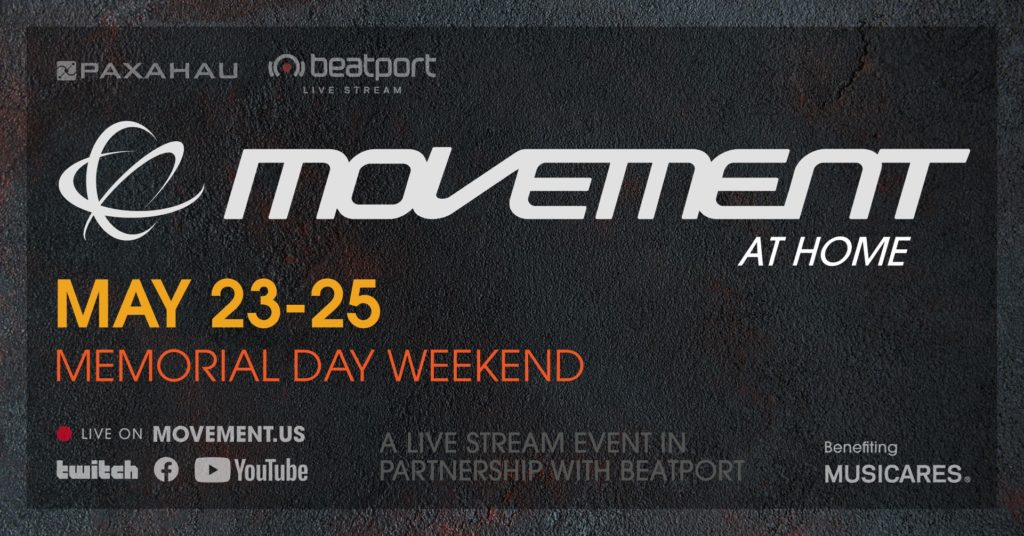Words by Broccoli
Around the world people have commented on the stillness of the streets in recent months, stoplights blinking for no one over once-busy intersections. Detroit is no stranger to this phenomenon, having experienced several socioeconomic sine waves in its lifetime far beyond the current pandemic. But for some, the lull will feel particularly poignant in the absence of one of the city’s proudest musical traditions, Movement Electronic Music Festival.
For more on festival’s inception and evolutionary life span, I would highly recommend reading Imani Mixon‘s article in Metro Times from 2018, “Detroit is Techno City, and techno is Black.” In the piece she explains, “Before “techno” became a catch-all term for electronic music, the music, its people, and its culture were much more representative of overlapping underserved and marginalized communities: Black, LGBTQ, and the youth.” While the festival is a main subject, it’s important to note that the event itself is only the most-visible manifestation of a much larger part of Detroit’s cultural history.

My appreciation and respect for the city of Detroit grows stronger with every day that I spend here. I am decisively a newcomer by the standards of a city with such a storied history, and if the festival’s life were a day’s time I would have arrived at about 6pm (the first DEMF occurred in the year 2000). As I have challenged myself to reflect upon my presence and be constructively critical of the space that I occupy, techno has consistently been an important vehicle for that process. The music is so deeply intertwined with the city’s industrial past and its affinity for innovation, and the socio-political dynamics of a post-1967 Detroit are not lost upon the art form. If there is one thing that techno has taught me about Detroit, it is that there is always more to learn.
As I said before, Memorial Day weekend in Detroit is about much more than just the festival. As early as Tuesday night the music begins pulsating throughout the city, and it does not stop until at least a week later. The four on the floor rhythm emanates from each passing car, filling up buildings and spilling out through open windows, filling the air like a deep breath. It is not hyperbolic to describe it as a sacred force, something that is always present but mostly remains imperceptible, except for the one weekend every year when we can all hear it.
One of my favorite memories of Movement didn’t actually occur at Hart Plaza, but instead at Leland City Club, on the “last” night of the festival in 2018 (which was really a warm and tired Tuesday morning). There is a certain catharsis that comes with the ending of any good thing, when you are torn between feeling satisfied and your desire to hold on until the very last second. It was there that I saw Juan Atkins bring the music that he baptized to some of the last people in the city that could keep their eyes open.
I remember so distinctly the moment that I recognized the song, “Clear,” despite the fact that I had never heard it before in its original form (this video might jog your memory). That was perhaps the first time that I truly felt the gravity of the arc that I was witnessing, one that began long before me and that will continue long after I pass. I felt indebted to everything that had made that experience possible, the peak of that present moment humbled by the foundation on which it stood.
I often describe the pandemic as “the water that we are all swimming in,” which is my way of acknowledging the fact that all of us are experiencing the same great force that has become a part of life as we know it, even if we are experiencing it in many different ways. It is also inspired by the old saying that sometimes even the most obvious and omnipresent things can go unnoticed, whether because we take them for granted, or because sometimes it is difficult to understand the significance of a moment while you are experiencing it.
This Memorial Day will be very different in Detroit, and on the surface it may feel like there is a great thing that is missing. But just because we can’t hear it, doesn’t mean it’s not there.

Join the party with Movement at Home, streaming live May 23rd – May 25th, 2020. More information can be found via Facebook, or visit the Movement website at www.movement.us.
The post Just Because We Can’t Hear It Doesn’t Mean It’s Not There appeared first on PLAYGROUND DETROIT.

